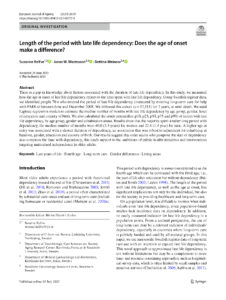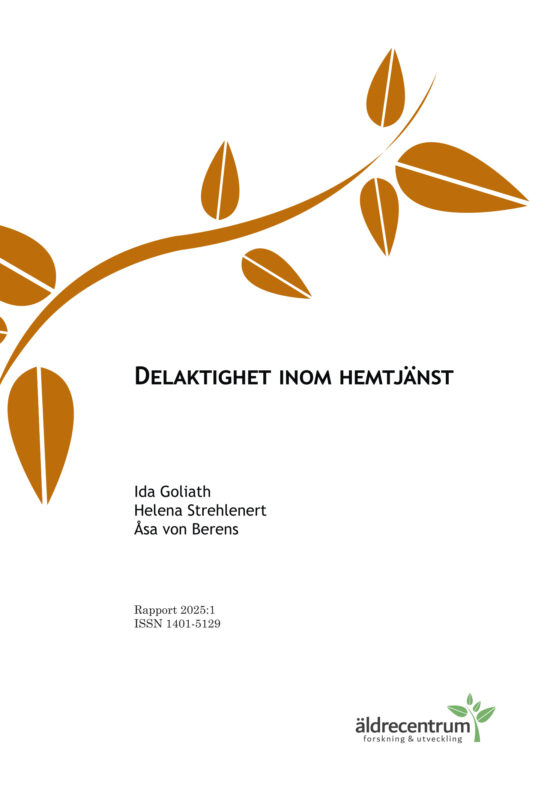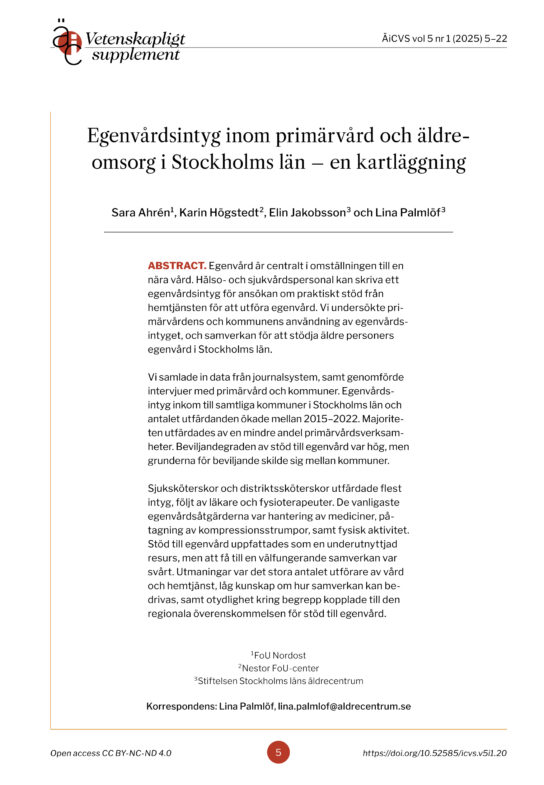Beror skörhet på när man kommer in i den fjärde åldern?
 There is a gap in knowledge about factors associated with the duration of late life dependency. In this study, we measured how the age at onset of late life dependency relates to the time spent with late life dependency. Using Swedish register data, we identified people 70 + who entered the period of late life dependency (measured by entering long-term care for help with PADLs) between June and December 2008. We followed this cohort (n = 17,515) for 7 years, or until death.
There is a gap in knowledge about factors associated with the duration of late life dependency. In this study, we measured how the age at onset of late life dependency relates to the time spent with late life dependency. Using Swedish register data, we identified people 70 + who entered the period of late life dependency (measured by entering long-term care for help with PADLs) between June and December 2008. We followed this cohort (n = 17,515) for 7 years, or until death.
We used Laplace regression models to estimate the median number of months with late life dependency by age group, gender, level of education and country of birth. We also calculated the crude percentiles (p10, p25, p50, p75 and p90) of month with late life dependency, by age group, gender and cohabitation status.
Results show that the majority spent a rather long period with dependency, the median number of months were 40.0 (3.3 years) for women and 22.6 (1.9 year) for men. A higher age at entry was associated with a shorter duration of dependency, an association that was robust to adjustment for cohabiting at baseline, gender, education and country of birth.
Our results suggest that older adults who postpone the start of dependency also compress the time with dependency, this lends support to the ambitions of public health initiatives and interventions targeting maintained independence in older adults.
Läs hela artikeln
Publicerad:
24 juni, 2023
 There is a gap in knowledge about factors associated with the duration of late life dependency. In this study, we measured how the age at onset of late life dependency relates to the time spent with late life dependency. Using Swedish register data, we identified people 70 + who entered the period of late life dependency (measured by entering long-term care for help with PADLs) between June and December 2008. We followed this cohort (n = 17,515) for 7 years, or until death.
There is a gap in knowledge about factors associated with the duration of late life dependency. In this study, we measured how the age at onset of late life dependency relates to the time spent with late life dependency. Using Swedish register data, we identified people 70 + who entered the period of late life dependency (measured by entering long-term care for help with PADLs) between June and December 2008. We followed this cohort (n = 17,515) for 7 years, or until death.



